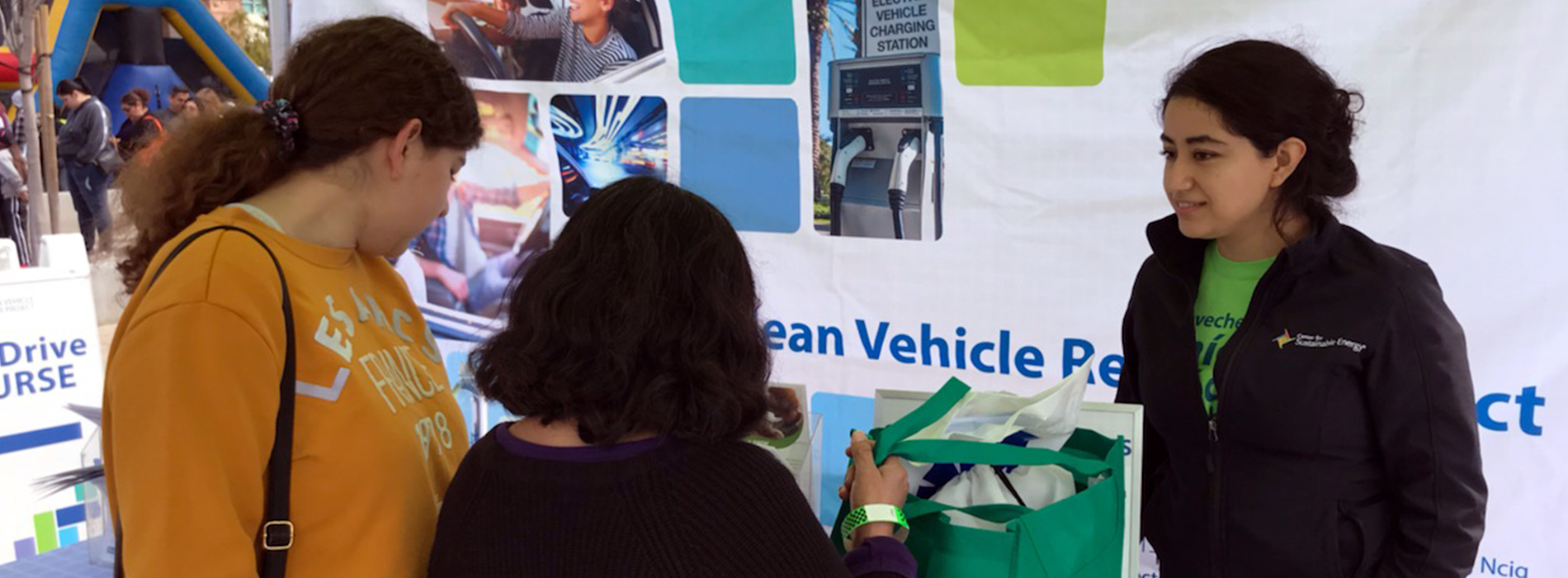Where do car shoppers learn about EVs? Personal and in-person matters.

Where are car shoppers getting information about electric vehicles? Based on surveys of participants in the nation’s largest statewide EV incentive program, personal, experience-based and peer-focused connections, along with third-party experts, are critical to moving a car shopper from EV-curious to EV adopter.
Survey says . . .
Over 32,500 participants in California’s Clean Vehicle Rebate Project (CVRP), were asked to rank the most important information sources they considered when shopping for a new EV. The top three by prevalence and ranked importance were:
-
Talking with an EV driver
-
Taking a vehicle test drive and
-
Reading or watching third-party vehicle reviews.
Rounding out the list, in order, were manufacturer websites, news stories, online discussion forums, social media, dealer/salesperson, other sources, electric utilities, employers and non-profit organizations.
1. Start a conversation
Encouraging EV drivers to talk to their peers can help car shoppers get personalized answers about EV ownership from someone with real-world experience. Other EV drivers were the most prevalent and highly valued EV information sources for CVRP participants. This marketing channel will grow as the number of people with EV-driving peers in their network keeps growing.
One way to expand peer-to-peer outreach is to share testimonials from EV drivers online and via social media. CVRP, which has been administered by the Center for Sustainable Energy since its inception in 2009, has done this throughout its website and Facebook, X (formerly Twitter) and Instagram.
2. Provide a test drive
Driving an EV is not that different from a gasoline-powered car – just better. And nothing is more convincing than a test drive. Getting behind the wheel overcomes the unfamiliarity that remains among the greatest barriers to adoption.
Though not ranked among the most influential information sources, dealership sales staff have a key role to play in both facilitating test drives and answering customer questions, including how and where to charge and available incentives. Keeping dealership sales teams up to date with the latest information is crucial to ensuring they can support customers in learning about EVs, which is why CSE has teamed up with the National Automobile Dealers Association to offer an online EV sales training course later this year.
Outside of dealerships, test drives are expensive to scale up, but auto trade groups, nonprofits, community organizations and government agencies can work with EV manufacturers and local dealerships to conduct them in conjunction with a variety of local events and activities. For example, the annual National Drive Electric Week celebration features hundreds of events across the country to introduce communities to the EV driving experience.
3. Reach out to reviewers
Third-party auto writers and reviewers are an important part of the information ecosystem for car buyers, and particularly for first-time EV buyers who in many cases rank the importance of expert opinions higher than first-hand experience (via test drives).
Experts may include longstanding publications such as Edmunds, Consumer Reports and Kelly Blue Book and EV bloggers who provide up-to-date information to consumers. To reach car shoppers, it’s also worth considering paid and earned marketing opportunities outside traditional auto media channels, such as independent tech reviewers and influencers on TikTok, YouTube or other platforms.
To increase EV adoption, meet consumers where they are
To reach ambitious federal and state goals for 100% EV market share, EV sales will need to build upon what is already working to accelerate EV adoption. In California, one in four new car sales is an EV while nationally it’s closer to one in 10.
Overcoming consumer uncertainties about EV ownership through data-driven marketing, education and outreach is vital to expanding the EV market from early enthusiasts to more mainstream car buyers. By understanding where EV owners got the information they based their decisions on and what motivated their purchase, we can focus efforts to be more effective.
======================
This article draws from a report presented by CSE’s Transparency and Insights team at the 36th Electric Vehicle Symposium and Exposition held in Sacramento, Calif., June 11-14, 2023: Building on what is already working: Describing a more nuanced understanding of rebated EV consumer groups.
For information on how CSE can provide marketing, education and outreach services to your EV or EV charging incentive program, contact consult@energycenter.org.


